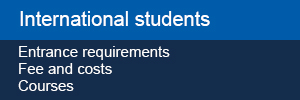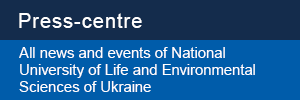Department history
The Department of Epizootology and the Infectious Disease Clinic of the former Kyiv Veterinary Institute was organized at the end of 1922. The head of the department was entrusted to Professor D. E. Kalkatin. In those years, the Department of Epizootology and the Infectious Diseases Clinic together with other clinical departments occupied the territory where the furniture factory named after Bozhenko (col. Bulyonska St., No. 84).
The clinics occupied the premises of the Animal Protection Society hospital and had several specially built premises. The location of the clinics in the 20s was a suburb of Kyiv with small private houses drowning in gardens. The population of the streets of the city and nearby villages kept a large herd of various livestock animals - horses, cows, pigs, goats, sheep, and poultry. This led to a constant influx of patients to the clinics of the veterinary institute, including the infectious disease clinic, which helped future veterinarians to acquire practical skills in the diagnosis and treatment of infectious diseases of animals. In addition, auxiliary farms of the institute, located not far from Kyiv, were also used for conducting practical classes in epizootology.
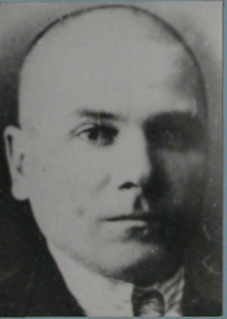
During the establishment of the Department of Epizootology, in addition to Professor D. E. Kalkatin, V. O. Bykov worked as an assistant here. There is no information about other employees of the department. It should be noted that D. E. Kalkatin wrote the first textbook on epizootology in Ukrainian, which was published in 1931 under the title "Pathology and therapy of infectious diseases in epizootology".
In 1930-1931 pp. on the outskirts of the city, a new premises of the epizootological building of clinics and a well-equipped hospital with 18 boxes for isolated keeping of infectiously ill animals were built. The Department of Epizootology was located in new buildings in 1931 and was in them until the beginning of the Second World War (1941). The structure of the department at that time included: large laboratories and arenas for practical classes and scientific research work with productive animals, an auditorium for giving lectures (it could be used to demonstrate animals), separate laboratories and offices for scientists, auxiliary premises. All wastewater from the infectious disease clinic and laboratories of the department of epizootology was diverted to a special collector, where it was subjected to total disinfection and only after that it entered the general sewage system. This made it possible to keep animals with various infectious diseases in inpatient clinics and conduct experiments, even with particularly dangerous pathogens. In general, the Department of Epizootology in terms of facilities and equipment occupied one of the first places in the USSR among similar institutions in the pre-war period.
However, the composition of teachers at the department often changed during this period, which hindered the creation of a cohesive epizootological school in Kyiv. After 1931, epizootology was taught at different times by: Ya. S. Sandomirskyi, who later moved to the Vitebsk Veterinary Institute; employees of the military veterinary laboratory of the Kyiv Military District — military veterinarian of the first rank F.I. Posrednyk, military veterinarian A.M. Laktionov (major general of the veterinary service, professor) and others.
Since 1933, the head of the Department of Epizootology was Professor L. S. Gogel, the teaching staff was represented by Associate Professor K. P. Pochechuev. Since 1935, the post of associate professor of the department, and since 1937, the head of the department, was held by O. S. Korotich. In 1938, the department of epizootology was joined by associate professor K. I. Dmitriev, who previously studied infectious diseases at the Institute of Experimental Veterinary Medicine. Subsequently, the staff of the department was supplemented by a resident, and then by assistant K. O. Nastenko and assistants S. E. Momotenko and H. M. Makoda.
From September 1941 to 1944, the department of epizootology, together with the veterinary institute, was evacuated to Sverdlovsk and functioned there as part of the veterinary faculty of the regional agricultural higher educational institution. The department was headed by Associate Professor K. I. Dmitriev, who devoted a lot of time to the elimination of infectious diseases of animals in the Ural, and was also the author of several chapters of the manual on epizootology "To the aid of a military vet" (1942), "Military Veterinary Handbook" (1942) etc.
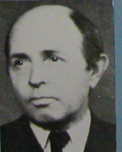
Since 1945, the leadership of the department of epizootology in Kyiv was again carried out by associate professor O. S. Korotich. At that time, the teaching of the discipline of epizootology was also conducted by associate professors K. I. Dmitriev, assistants K. O. Nastenko and M. I. Horban. Auxiliary staff of the department consisted of: resident L. P. Pogribnyak, laboratory assistants A. G. Kolesnyk and M. F. Gatsanyuk, vet sanitary M. U. Zhuk.
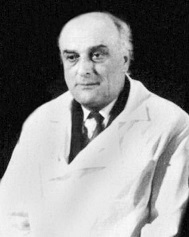
In 1949, professor O. L. Skomorokhov (school of Academician S. M. Vysheleskyi) was appointed head of the department, and in 1952 - associate professor K. O. Nastenko. In 1954, professor O. K. Shcherbina, a well-known specialist in the field of fish diseases, was elected to head the department, who later headed the department of epizootology until 1968. During this period, associate professor K. I. Dmitriev worked at the department; associate professor K. O. Nastenko; assistant, and since 1959 associate professor M. I. Horban and assistant V. P. Lytvyn (since 1967 p.). M. O. Dovhych and M. F. Stepenko worked as residents of the department (since 1955), art. laboratory technician L.F. Pavlova and M.Ya. Shabelnyk, veterinarian M.U. Zhuk, senior prepared by A. V. Levyschenko and Yu. T. Pylypenko.
In 1963, the department of parasitology was attached to the department of epizootology. In the 1969/70 academic year, the department of epizootology and parasitology had the following composition of epizootology employees: v. at. of the head of the department, associate professor I. P. Revenko, associate professors M. I. Horban and K. O. Nastenko, senior teacher, candidate of veterinary sciences V. P. Lytvyn, assistant candidate of veterinary sciences V. P. Ryzhenko, resident M. F. Stepenko, senior laboratory assistant L. Yu. Kucheruk, senior prepared by A. M. Skorokhod; and parasitology: associate professor O. O. Shevtsov, assistants, candidates of veterinary sciences L. N. Zaskind and V. F. Galat, resident M. A. Bolyura, senior laboratory technician N. Sh. Sytnyakovska and senior prepared by G. F. Sytnirenko.
Unfortunately, after 1945, a large part of the premises of the department of epizootology and the inpatient clinic of infectious diseases was transferred to other departments of the veterinary and zootechnical faculty. But even in such conditions, the department of epizootology and parasitology carried out the necessary educational and research work, making maximum efforts to train highly qualified veterinarians.
In connection with the creation of large farms with industrial animal husbandry technology, as well as as a result of the elimination or reduction of areas of trouble from many infectious animal diseases, the main task of epizootology teachers was to help students achieve a high level of mastery of the organization of special preventive and anti-epizootic measures. For this purpose, the students mastered the newest methods of diagnosing infectious diseases of animals, the list of the most effective biological preparations, antibiotics, etc. For this purpose, student trips to livestock farms and poultry farms were practiced during educational practice and practical classes, student work in veterinary laboratories, multi-month industrial practice, etc. were encouraged. In the educational process, the demonstration of special motion pictures and filmstrips was introduced, and plans for anti-epizootic measures against various infectious and invasive diseases were developed, taking into account economic issues. Their active participation in the work of the scientific student circle helped to improve students' mastery of the discipline.
In order to improve the training of part-time students, the teachers of the Department of Epizootology wrote a number of manuals and lectures: "Clinical examination of infectious animals", "Manual on the organization and economics of veterinary activities" and "Practical work on epizootology" by Associate Professor M. I. Horban, "General patterns of epizootic process" by Professor O.K. Shcherbyna, "Bacteriophages, their importance and practical use" by Associate Professor I.P. Revenko and others.
Also, the teachers of the department were engaged in the promotion of epizootological knowledge among veterinary specialists and the general public, publishing special brochures, printing popular articles, posters and postcards, giving lectures and conducting discussions (M. I. Horban, K. O. Nastenko, V. P. Lytvyn, etc. ). They also constantly maintained a close connection with production and provided advisory and practical assistance to many farms of the republic in organizing measures to prevent and eliminate infectious animal diseases. In this direction, considerable attention was paid to the development and implementation in practice of methods of complex immunization against the most important infectious diseases in specialized pig farms (V. P. Ryzhenko and others).
Since 1985, the Department of Epizootology and Infectious Diseases has been headed by Doctor of Veterinary Sciences, professor, laureate of the State Prize of the Ukrainian SSR V.P. Lytvyn
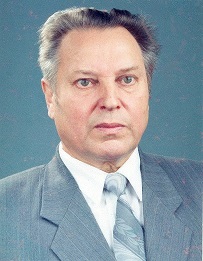
Since 1987, he has been in charge of the scientific work of the department, which is dedicated to the solution of the urgent issue of animal husbandry - the preservation of young farm animals and poultry, the search, development and introduction into practice of new drugs. In cooperation with scientists of the Academy of Sciences of Ukraine, he has developed and put into production 19 biological and antimicrobial drugs over the past 20 years. NTDs for 16 drugs were approved in the current order, which gives permission for their use. Among them are probiotics (bacterin-SL, sporolact, monosporin-PC, bifidum-bacterin veterinary) antimicrobial and disinfectant preparations (ethonium, thionium, dodeconium, envet-1, quinifur, vetazol, vodozol, sanapin, vetaderm, proteflazid) vitamins drugs (aquagram, hermo gran), etc. Together with the professor of the department V.P. Ryzhenko developed and produced four associated vaccines against escherichia, salmonellosis and anaerobic enterotoxemia for industrial testing.
V.P. Lytvyn is the author of twelve certificates and four patents, more than 300 scientific and methodological works, including twelve textbooks, manuals and monographs.
In 1987, V. P. Lytvyn became a laureate of the State Prize of Ukraine. At the same time, he participated in the work of the Supreme Administrative Court of Ukraine (deputy chairman of the expert commission), was a member of the Research Council of the Ministry of Agrarian Policy of Ukraine, two specialized councils for the defense of theses. He trained eight candidates of sciences.
For conscientious scientific and pedagogical activity, Professor V.P. Lytvyn was awarded 4 medals, jubilee signs, certificates of honor of the Ministry of Agriculture of the USSR, the Ministry of Agriculture of the Complex of Ukraine and the National Agrarian University, elected an academician of the Academy of Sciences of the Higher School of Ukraine (1996). He is a laureate of the academic award of Yaroslav the Wise (2001), laureate of the state award of the Ukrainian Academy of Sciences (2004), and is a valid foreign member of the Russian Academy of Natural Sciences named after V.I. Vernadskyi (2001) and honorary professor of the Kharkiv State Veterinary Academy (2002).
In February 2002, a new department of organization, economy and marketing in veterinary medicine was organized on the basis of the department of epizootology and organization of veterinary affairs, which was headed by its first head, doctor of veterinary sciences, professor, academician of the Ukrainian Academy of Sciences V.O. Busol.
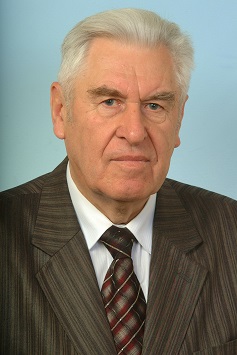
After the division, the department was called Epizootology and Infectious Diseases. At the same time, associate professors M.T. Radionov, associate professor, honored veterinarian of the Ukrainian SSR A.F. Yevtushenko, associate professor, well-known ichthyologist M.G. Nakonechna worked fruitfully at the department.
Since September 2004, Associate Professor V.P. Postoi has headed the Department of Epizootology and Infectious Diseases.
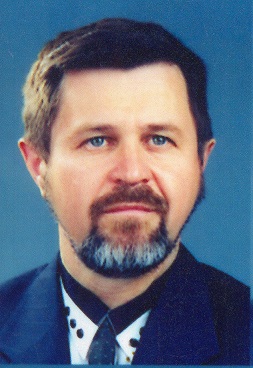
From November 2007 to March 2009, acting the head of the Department of Epizootology and Infectious Diseases was Doctor of Veterinary Sciences, Associate Professor Mazur T.V.
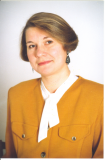
In March 2009, the Department of Organization, Economics and Marketing in Veterinary Medicine was added to the Department of Epizootology and Infectious Diseases. The department was named epizootology and organization of veterinary affairs, and the department was headed by Doctor of Veterinary Sciences, Professor Vitaliy Volodymyrovych Nedosekov.
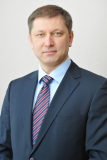
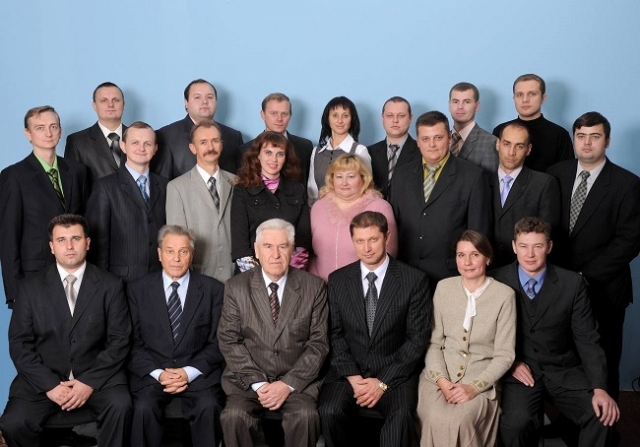
Department of epizootology and organization of veterinary affairs, 2010.
Currently, the educational and research work at the department is carried out by Professor Nedosekov V.V., Associate Professors Polishchuk V.V., Lytvynenko V.M., Sytnyk V.A., Sorokina N.G., Melnyk V.V., Shevchuk V.M., Martynyuk O.G., assistant Zhukovsky M.O.
The history of the Department Parasitology and Tropical Veterinary Medicine begins as a discipline of veterinary parasitology, that has been functioning at the Kyiv Veterinary Institute since 1930.By this time some of its sections have been taught at the Departments of Zoology and Epizootology. Since 1931 parasitology course has started in the Kyiv Veterinary Institute, the head of the Department of Pathological Anatomy was Professor F.M. Ponomarenko.
In 1935 a Department of Parasitology was established, headed by associate professor, and later Professor R. S. Chebotariov.
In 1941, at the beginning of the Great Patriotic War, the Department of Parasitology together with the Kiev Veterinary Institute was evacuated to Sverdlovsk, where it was until 1944. After returning the institute in Kyiv since 1945 to 1950, the department was headed by Academician of the National Academy of Sciences of the O.P. Markevich since 1950 to 1959, the chair was again headed by Professor R.S.Chebotarev, and since 1959 to 1961, by associate professor O.O. Shevtscov.
In September 1961, the Department of Parasitology was united with the Department of Microbiology. The joint chair was headed by professor V.V. Nikolsky.
In October 1963, parasitology discipline became part of the Department of Epizootology and Parasitology. The head was appointed Professor O.K. Shcherbyna, who led the department until 1968.
In 1968, the Department of Pharmacology and Parasitology was founded, headed by Professor S.V.Bazhenov.
In 1984, the discipline of parasitology was transferred to the Department of Tropical Veterinary Medicine, which was founded in 1973. The first its head was selected by competition, associate professor Volodymyr S. Kozachok, who led the department for 25 years. Thanks to his considerable organizational skills and high professional training, he quickly assembled a hard-working and friendly team.
Department of Tropical Veterinary Medicine was the first and only such profile in Ukraine. She served as a training center for studying and training veterinarians for tropical and subtropical countries.
In 1984, the department of tropical veterinary medicine was associated with parasitology, and in 2001 it was named as the Department of Parasitology and Tropical Veterinary Medicine, which functions to this day.
Since 1998 to 2007, the head of the Department of Parasitology and Tropical Veterinary Medicine was a Doctor of Veterinary Sciences, Professor Vladyslav F. Galat.
Since 2007, the head of the Department of Parasitology and Tropical Veterinary Medicine has been selected by competition, the doctor of veterinary sciences, professor Natalia M. Soroka and headed till 2020.
16.00.11 – Parasitology and 13.00.03 – Human and animal physiology.
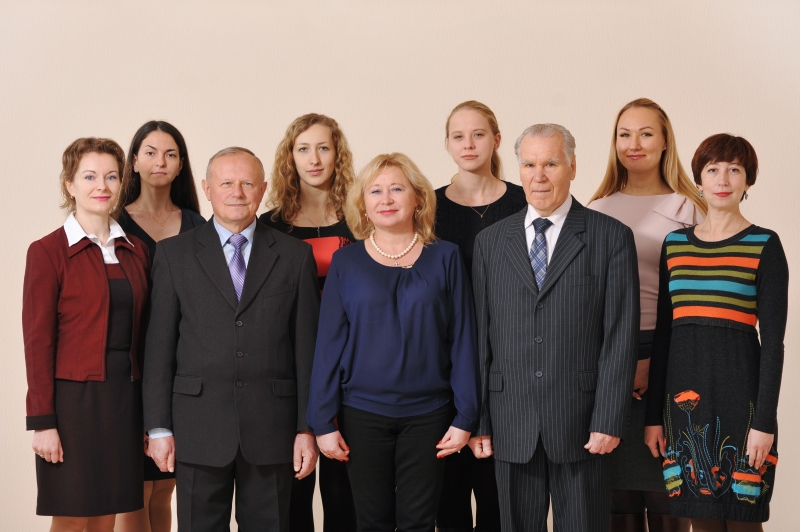
Staff of the Department Parasitology and Tropical Veterinary Medicine, 2018

